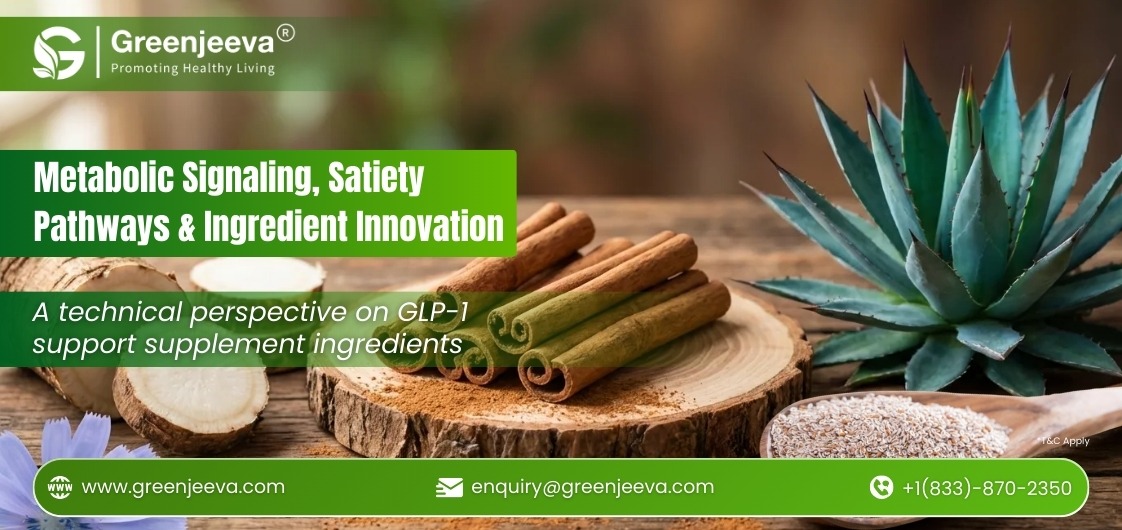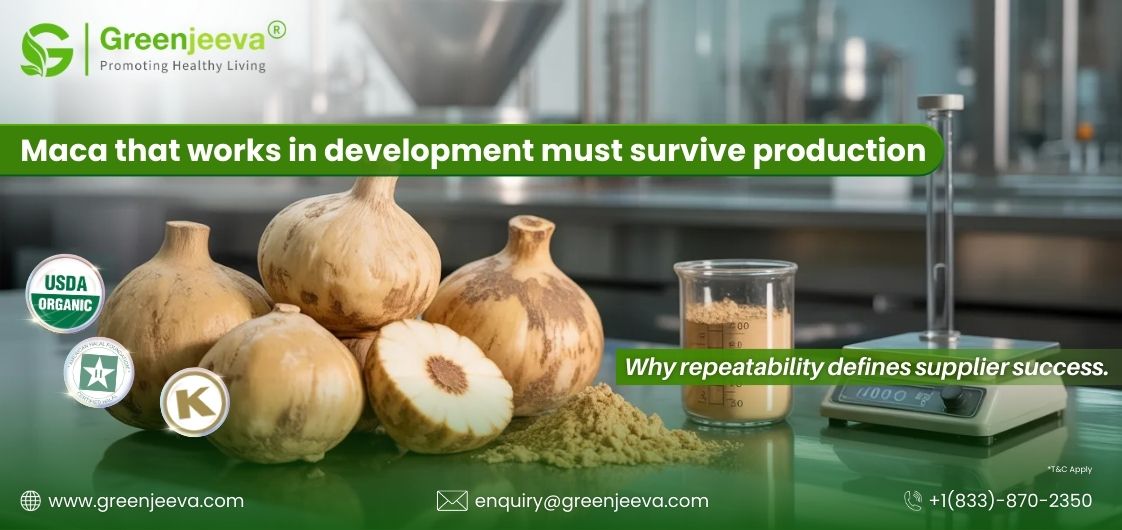Digestive and Detoxifying Ingredient Market: Overcoming Sourcing Challenges

In today's health-conscious world, there is a growing demand for digestive and detoxifying products that promote overall well-being. These products rely on high-quality raw ingredients known for their potential digestive and detoxifying properties. However, sourcing these ingredients can present numerous challenges for B2B companies.
In this blog, we will explore the key sourcing challenges faced by B2B teams and provide valuable insights on overcoming them to ensure success in the competitive marketplace.
Understanding the Sourcing Challenges
To successfully address the sourcing challenges involved, it is essential to understand the complexities and intricacies that sourcing teams face in procuring ingredients with potential digestive and detoxifying properties.
Limited Availability and Seasonality: One of the significant challenges in sourcing digestive and detoxifying ingredients lies in their limited availability and dependence on seasonal factors. Some ingredients may be region-specific or have specific harvesting seasons, making their procurement complex. Establishing solid relationships with suppliers who can provide consistent supply or identifying alternative sourcing options becomes crucial to overcome this challenge.
Quality Control and Standardization: Maintaining strict quality control measures is paramount to ensure the efficacy and safety of digestive and detoxifying ingredients. With variations in potency, purity, and safety across different suppliers, partnering with trusted suppliers who adhere to stringent quality standards, certifications, and traceability practices is imperative. Conducting thorough due diligence and qualifying suppliers based on their quality control processes are essential steps in this regard.
Sustainability and Ethical Sourcing: Consumers today are concerned about their well-being and the impact of their choices on the environment and society. Sourcing teams are challenged to find suppliers who follow sustainable cultivation practices, protect biodiversity, and support fair trade. Meeting these ethical sourcing standards can be demanding, but aligning with consumer expectations and maintaining a positive brand image is essential.
Key Digestive and Detoxifying Ingredients and Their Sourcing Considerations
The sourcing teams must navigate the challenges of sourcing ingredients with potential digestive benefits. Here are the key ingredients they need to consider:
Ginger Root:
Ginger root is known for its digestive properties and is widely used in various products. Sourcing challenges for ginger root include verifying its geographic origin, organic certifications, and ensuring high levels of active compounds. By partnering with suppliers who provide traceability and robust quality assurance processes, sourcing teams can secure a reliable supply of high-quality ginger root.
Turmeric:
Turmeric, with potent anti-inflammatory and detoxifying properties, is in high demand. However, ensuring the quality and authenticity of turmeric can be challenging due to variations in curcumin content and the risk of adulteration. Sourcing teams should prioritize working with suppliers who can provide reliable and traceable sources of turmeric backed by third-party testing and certifications.
Peppermint Leaf:
Peppermint leaf is valued for its digestive and calming effects. Sourcing challenges include verifying its geographic origin, organic certifications, and the volatile oil content that contributes to its therapeutic properties. Sourcing teams can meet consumer demands by establishing relationships with suppliers who consistently maintain the quality of peppermint leaf and ensure compliance with rigorous standards.
Fennel Seed:
Teams must navigate the market to find trustworthy sources of fennel seeds, which are known for aiding digestion and relieving discomfort. They should prioritize suppliers who offer high-quality fennel seeds that can help reduce bloating, ease indigestion, and support healthy digestion.
Dandelion Root:
Sourcing teams must partner with suppliers who can provide reliable dandelion root known for their diuretic properties. They should ensure the availability of high-quality dandelion root that supports liver health and detoxification, stimulates bile production, improves digestion, and promotes the elimination of toxins.
Milk Thistle Seed:
Teams should prioritize suppliers offering premium milk thistle seeds rich in the flavonoid silymarin. They need to ensure the availability of high-quality milk thistle seeds that support liver health, enhance detoxification, and aid digestion.
Licorice Root:
Sourcing teams should seek reputable suppliers of licorice root, known for its traditional use in soothing the digestive system and supporting healthy digestion. They must ensure the availability of high-quality licorice root. A good quality licorice root that can relieve indigestion, reduce inflammation in the digestive tract, and support liver health.
Aloe Vera Gel:
Teams must prioritize suppliers who offer pure and high-quality aloe vera gel known for its soothing properties and support for gastrointestinal health. They need to ensure the availability of aloe vera gel that promotes healthy digestion, alleviates symptoms of gastrointestinal disorders, and supports detoxification.
Slippery Elm Bark:
Sourcing teams should partner with suppliers offering reliable slippery elm bark known for its rich mucilage content. They must ensure the availability of high-quality slippery elm bark. The quality helps soothe the digestive tract, relieve symptoms of gastrointestinal disorders, and support healthy digestion.
Artichoke Extract:
Teams must navigate the market to find suppliers offering high-quality artichoke extract known for supporting liver health and bile production. They should ensure the availability of artichoke extract that aids digestion and detoxification, relieves symptoms of indigestion, and supports a healthy digestive system.
By prioritizing sourcing these ingredients and partnering with reliable suppliers, sourcing teams can ensure the availability of high-quality ingredients. Quality ingredients promise desired digestive benefits in the products they develop.
Overcoming Sourcing Challenges and Ensuring Supplier Reliability
By effectively navigating the complexities of ingredient sourcing, sourcing teams can overcome challenges. And also ensure the reliability of suppliers, ultimately delivering high-quality products with the desired digestive and detoxifying properties.
Supplier Qualification and Due Diligence: Thoroughly vetting potential suppliers is crucial in mitigating sourcing risks. Conducting site visits, verifying certifications, and assessing their quality control processes are essential for supplier qualification. Companies can establish a robust supply chain by investing time and effort in building long-term partnerships with reliable suppliers. A reliable supply of desired digestive and detoxifying ingredients.
Diversification of Sourcing: To minimize risks associated with limited availability and seasonality, diversifying sourcing channels is essential. Relying on multiple suppliers and exploring different regions can help ensure a consistent supply of ingredients even during disruptions. Backed by market intelligence and supplier collaboration, strategic sourcing decisions are key to successful diversification.
Collaboration and Transparency: Open communication, collaboration, and transparency with suppliers play a crucial role in overcoming sourcing challenges. By maintaining a strong supplier relationship, sourcing teams can address concerns proactively. It also helps them stay updated on market dynamics and drive sustainability initiatives. Transparent communication ensures the alignment of goals and fosters mutual trust and accountability.
Conclusion
Navigating the sourcing challenges for digestive and detoxifying requires diligence, strategic planning, and collaboration. By understanding the limited availability, ensuring quality control, prioritizing sustainability, and establishing reliable supplier networks, B2B companies can meet the increasing consumer demand for high-quality digestive and detoxifying products.
Overcoming these challenges ensures business success and supports the well-being of consumers and the environment. By embracing these strategies, B2B companies can carve their path to success in the competitive digestive and detoxifying market.
**The Food and Drug Administration has not evaluated these statements. This product is not intended to diagnose, treat, cure, or prevent any disease.**



.jpg)


